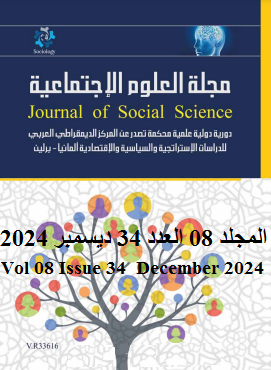The Representation of Social Powers and Ideologies in the Commandments of Luqman the Wise in Surat Luqman: A Critical Discourse Analysis
Keywords:
Critical Discourse Analysis, Textual strategies, Discursive Strategies, Ideology, Power, Surat LuqmanAbstract
This study intends to display the ideologies and power presented in the translated verses in Interpretation of the Meanings of the Nobel Qur’an in the English Language based on the interpretation of Al-Tabari, Al-Qurtubi, and Ibn Kathir. The study is concerned with exclusively analyzing to the texts related to the commandments of Luqman the Wise. Linguistically, the texts are analyzed on three levels according to textual strategies and discursive strategies, then social practices. The study aims to reveal and convey the ideologies present in the commandments of Luqman the Wise, in addition to present the types of power prevailing in the texts to clarify the impact that linguistic discourse can have in changing societies. Moreover, the study explores the importance of sober language in achieving better change at the behavioral, moral and intellectual levels as social practices. To achieve the above-mentioned aims, in terms of textual and discursive levels used in the text under investigation, the paper hypothesizes that a number of ideologies and social powers that transmit and adopt theses ideology are revealed. The texts are analyzed discursively and textually within the Fairclough's approach (2001)
Downloads
Published
Issue
Section
License
Copyright (c) 2024 Journal of Social Sciences

This work is licensed under a Creative Commons Attribution-NonCommercial 4.0 International License.
This work is licensed under CC BY-NC 4.0






